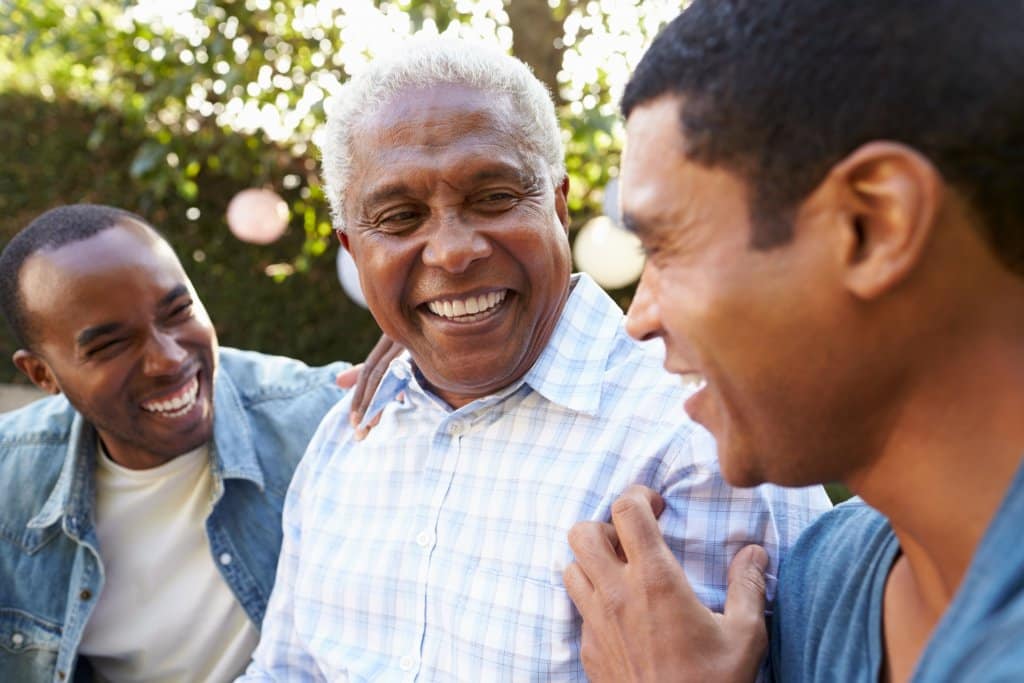Regardless of what we look like on the outside, we all have pretty much the same features inside. Yet when it comes to urinary health, people of color in the U.S. suffer at least four medical conditions at higher or more deadly rates than others. These conditions are testicular cancer, kidney disease, urinary tract infections, and prostate cancer.
Unfortunately, this trend is in keeping with a broader health analysis of the U.S. population. Life expectancies among Blacks/African Americans and American Indians/Alaska Natives are lower than among Whites, and death rates among Black/African American people are generally higher when it comes to heart disease, cancer, stroke, asthma, diabetes, and pneumonia, the U.S. Department of Health and Human Services Office of Minority Health reports.
Further, young Black Americans are living with or dying from many conditions usually found in White Americans at older ages, according to Centers for Disease Control and Prevention. It also reports that Hispanics/Latinos are 50% more likely to die from diabetes or liver disease. And Asian Americans have a high prevalence of chronic obstructive pulmonary disease, hepatitis B, tuberculosis, and liver disease.
The first step to improved health among these populations is prevention, which requires both knowledge and timing. We want to provide the knowledge, and this April, which is National Minority Health Month, is the time.
The 4 High-Risk Urinary Conditions, Explained
Following are the urinary conditions that tend to occur at higher rates among minorities, as well as the genetic and social factors that contribute. With this understanding, we can help ourselves, and those important to us, offset the risks.
Testicular Cancer Deaths
While White men are five times more likely to develop testicular cancer than Black men, their survival rate is higher than other races and ethnicities. Research shows the five-year overall survival rate among Black men in the “regional” stage of cancer is 87.7%, compared with 91% among Asian American/Pacific Islanders, 94.5% of Hispanic/Latinos and 95.3% among Whites. The difference increases at late-stage cancer.
Some researchers believe testicular cancer fatality rates are higher among Black men due to late detection, but genetics, lifestyle, and environmental factors also likely contribute. Leading symptoms include pain or a heavy feeling in the testicles and changes in their shape and/or size.
Kidney Disease
Kidney disease occurs when the kidneys are damaged and as a result can no longer filter blood effectively. Black Americans are more than three times as likely as Whites to experience kidney failure. Latinos are 1.3 times more likely, according to the National Kidney Foundation. Among Asian Americans, the rates of kidney failure caused by diabetes have doubled within the ages of 30 to 39 from 2000 to 2010 (the Foundation’s most recent figure). Additionally, some research indicates chronic kidney disease is slightly higher among women than men.
Researchers theorize that incidents of the disease are linked to higher rates of high blood pressure, diabetes, obesity, and heart disease. Access to healthcare may also play a role.
Indicators of kidney disease include swellin in the legs, loss of appettite, metallic taste to foods, unclear thinking, and decreased urination or urinating only at night.
Urinary Tract Infections (Among Women)
The lion’s share of urinary tract infections (UTIs) occur among women – as many as 50% of women experience one in her lifetime, compared with 3% of men. Among women, rates vary by race. An analysis of self-reported UTIs disclosed that American Indian women had the highest prevalence of UTIs, 24.2%, compared with 16.6% of White women. Among Black women, the rate is 20.3%, and among Hispanic women, 18.3%.
Signs of a UTI include burning while urinating, more frequent urination (but only a few drops come out), and the feeling of not being able to hold it.
Prostate Cancer
Research shows that Black men are 74% more likely to develop prostate cancer than any other race/ethnicity, and are more than twice as likely to die from the disease. Among Hispanic/Latino men, prostate cancer accounts for one of five new cancer diagnoses, making it the most commonly diagnosed cancer in this population, according to the Prostate Cancer Foundation. Asian American men are diagnosed at lower rates; common symptoms include frequent urination (especially at night), difficulty starting and stopping, a weak flow, and blood in the urine. However, these can also be signs of non-cancerous BPH so it’s worth an annual trip to the urologist for regular cancer screening.
Inherited genetic factors might contribute to the higher risk of developing the cancer, as well as nutrition, smoking, limited physical activity, and pollutants. Higher mortality rates are believed to be due, in part, to late diagnosis and/or treatment.
Early Detection is Key
Those who experience symptoms of any of these diseases should see a doctor and get screened to diagnose the disease at an earlier and more treatable stage.
If you think you are experiencing a urinary condition, you can check out your symptoms on our free Symptom Checker here. If you have any questions about your urinary health, contact us.

